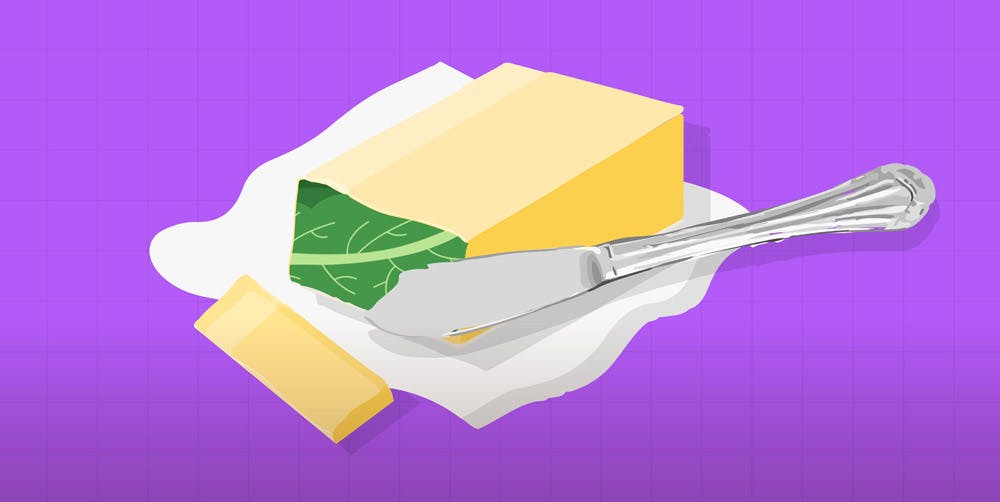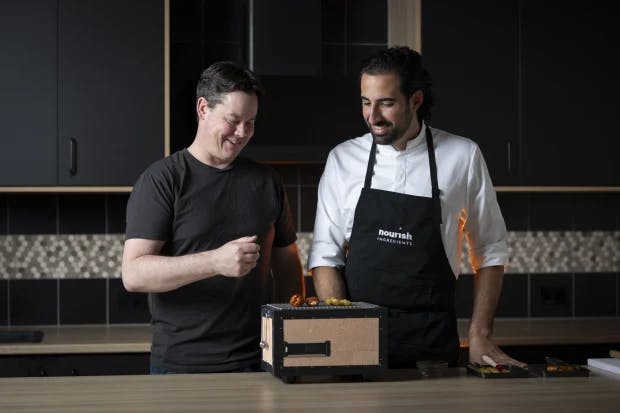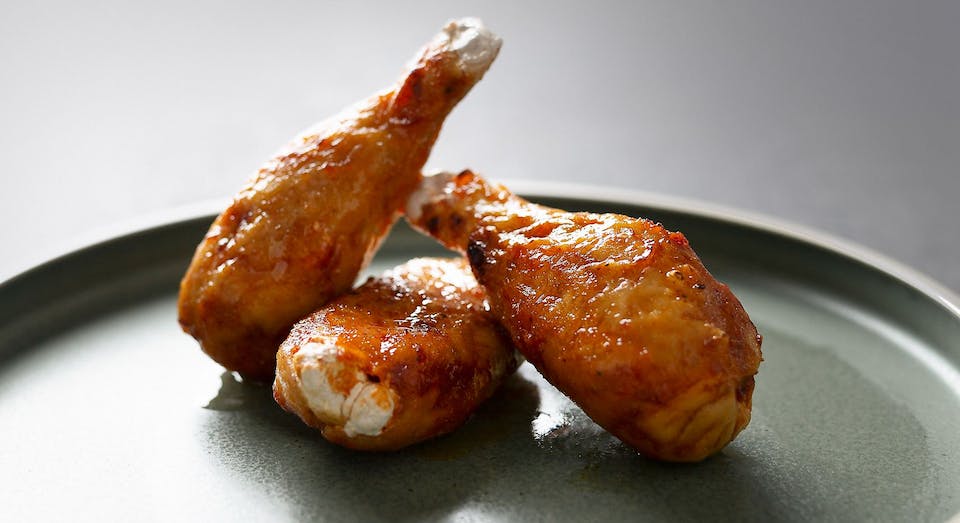Alt-Fats: Why Alternative Fats Could Change Plant-Based Products (And More) For The Better
Plant-based alternatives to traditional animal products are hot, and the shift to substitutes - better for health, the environment and animals - shows no sign of stopping.
As a result, a band of startups are working hard to produce new fats and fat substitutes that can be used in plant-based products and cultured meat to improve taste, texture, health benefits and sustainability.
- Despite the growth in plant-based meat substitutes, most would agree that few products currently on the market are a truly perfect replacement for the genuine article.
- Many of the fat replacements routinely added to plant-based meats and dairy to simulate the taste and mouthfeel of animal fat are high in unhealthy saturated fats.
- These can have a greasy feel and a tendency to leak out of the product when cooked, compromising the flavour.
- While the latest fat substitutes are very much of the moment, scientists and food producers have been trying to find plant alternatives to animal fats for more than a century, since the invention of margarine in France in 1869.
- Until recently, innovation in the field has been gradual and fat replacements in plant-based products have mainly focused on coconut or palm oil.
- The majority of companies in this space are making alternative fats for use in plant-based meats. The theory is that if the final obstacle of tasty animal-free fat can be scaled, there’ll be no stopping the plant-based pivot.
- Some companies are going about this by using real animal cells, similar to the methods used by cell-based meat manufacturers. Hoxton Farms in the UK, for example, grows purified animal fat in bioreactors to produce a delicious, cruelty-free and sustainable ingredient that can be used in plant-based products. Their specialty fats won them the The Royal Society of Chemistry’s award for emerging technologies last year.
- Other firms working on cultured (aka cultivated or cell-based) fats include the USA’s Mission Barns, Belgium’s Peace of Meat and Cubiq Foods in Spain.
- Other companies are heading down the alternative proteins route to discover new fats, many of them using fermentation in the process. Nourish Ingredients uses proprietary yeast fermentation, for example.
- Meanwhile, French startup 77 FOODS, which recently won Unilever’s Innovation Challenge, is building its products on a plant-based fat prototype that it claims emulates the properties of animal fat. It’s focusing on that French classic, the lardon, to begin with.
- While most companies are focusing on plant-based meats, some - like Perfect Day - are looking to the ways alternative fats can be used in animal-free dairy products.
- The next big thing could even be fat made from air - or at least that’s the claim of Swedish research organisation RISE.
- The major driver of the alternative fats trend is the growth in plant-based meats. The number of ‘vegan’ meat substitutes on the market has skyrocketed in recent years, with the market expected to be worth $8.3bn by 2025 and only growing. But the main barrier - as fat replacer startups see it - is that these vegan meats still don’t taste as good as they could, and that’s mainly due to the lack of animal fat (which makes meat so tasty).
- This taste barrier also means consumers are less likely to embrace plant-based meats. Over 50% of consumers are doubtful that plant-based foods will ever look or taste as good as their animal-based counterparts, according to research from Motif FoodWorks. But if they taste as good as the ‘real thing’, even diehard meat lovers might be convinced to make the switch at least some of the time. And that’s important because curbing the world’s appetite for animal meat is essential to avoiding climate catastrophe.
- Health concerns are also playing a role. Many plant-based meats use vegetable fats like palm oil or coconut oil as these are solid at room temperature, but they contain high levels of saturated fat.
- They also tend to seep out of plant-based meats during the cooking process. This makes it hard for vegetable fats to fully replicate the oozing, fatty taste that many feel makes ‘real’ meat so delicious.
- These plant oils, especially palm oil which attracts loud criticism, are not just bad for human health – they’re tough on the planet too. Palm oil is linked to deforestation, and coconut oil production threatens habitats and ecosystems. So new fats that can replace these destructive alternatives hold real promise.
- The global fat alternatives and replacers market was worth $1.53 billion in 2015.
- And it is projected to grow at a CAGR of 6.2% to 2025.
- Meanwhile, the plant-based meat alternative market - which many alt fats are aiming at - is valued at $4.3bn.
- Spanish food tech startup Cubiq deals in what it calls ‘smart vegan fats’ - an animal-free emulsion with ‘a full flavour profile and fewer calories’ which it hopes will come to be used as a substitute for animal fats in plant-based meat products (and more!).
- The Barcelona-based alternative fat came into being in 2018 and uses 50% less fat compared to animal fats. Yet its similar properties ensure it behaves like animal fats in food. The company is currently protypting plant-based products and hopes to start selling these in summer 2021.
- Alongside its vegan smart fat, Cubiq is also working on omega-3 fats, designed to increase the amount of healthy omega oils we consume in our diets. In spring 2020, the Spanish startup received €5m in funding to develop these omega-rich fats further.
- Affordability is a big concern for the company, which is aiming to sell its vegan fat at a price point similar to coconut oil.
- While Cubiq’s main focus is fats for use in plant-based substitutes, the founders also see potential for their products to be used in hybrid products that combine conventional meat and cultured fats, because these fats are so much healthier than the fat in animal meat.
- CEO and co-founder Andres Montefeltro said: ‘This will be key to transforming the traditionally 100% meat food chain into a more sustainable one, reducing animal sourcing and introducing vegetal options into the equation.’
- In the coming months, Cubiq plans to begin distributing its Go!DropⓇ (vegan) fat replacer in Europe, broadening to focus on the US and Asia in 2022. Its Go!Mega3Ⓡ (omega-3 products) will become available early next year too.
- Cubiq’s R&D efforts are now concentrating on the dairy sector to produce healthier cheeses lower in saturated fats using its smart alternatives. There also plans to become profitable by the end of 2021.
- Nourish Ingredients is an alternative fats company based down under, founded in 2019.
- The Aussie company makes specialty fats and oils, designed to make plant-based alternative proteins taste just as delicious as animal fats - but without the massive costs to human health, animals and the environment.
- Nourish’s founding mission was to improve the fats and oil offering within the alternative protein market. Its founders were frustrated by the limitations of coconut and palm oil, with producers unable to meet demand and limited flavour benefits.
- The company’s scientists have developed a proprietary yeast fermentation process that reproduces the molecular layout of animal fats, allowing them to replicate the proteins of animal-based meats like pork and chicken, as well as seafood.
- Recreating these proteins means Nourish’s alt fats can be used in plant-based products that mimic seafood, beef, chicken and pork, providing a superior taste, texture and mouthfeel to vegetable fats like coconut and palm oil.
- Just last month, the Australian startup announced $11m in new funding to continue developing its animal-free fats.
- Alternative fats are likely to improve the taste, texture and mouthfeel of plant-based and cultivated meat products. So this may widen their appeal to consumers not convinced by the taste of current plant-based products on the market, that tend to use coconut or palm oil.
- Alternative fats and their associated product uses may also appeal to consumers concerned with health - as many of the substitutes in development claim to be more nutritious than both current animal-based and animal-free options.
- The sustainability benefits of alternative fats are several: decreased reliance of plant-based producers on fats and oils associated with destructive or exploitative practices can only be a good thing. And cultivated fats should pave the way for even tastier lab-grown meat, reducing the need for mass agriculture and animal exploitation.
- For those currently making plant-based substitute products, alt fats - whether cultivated, fermented or otherwise - present an exciting avenue to improve the taste, flavour and nutritional profile of their products.
- There may be consumer hesitancy around cultivated fats, in particular, in the same way as has been documented with lab-grown meat.
- At present, most alternative fat production methods are expensive and the cost of the resulting fat replacement is therefore higher than more conventional equivalents. However, the price is likely to decrease as the technologies become more widespread and demand picks up.
- The availability of these fats to the average shopper is currently very limited, but that should change quickly.
- Alt fat innovations won’t just be limited to the animal-free sphere: in future, alt fats could come to be used in many products across categories to improve health, whether baked goods, processed meat or snacks.
- And the innovation that alternative fats are already bringing to the plant-based industry is exciting, with new developments likely to multiply in the coming years.




